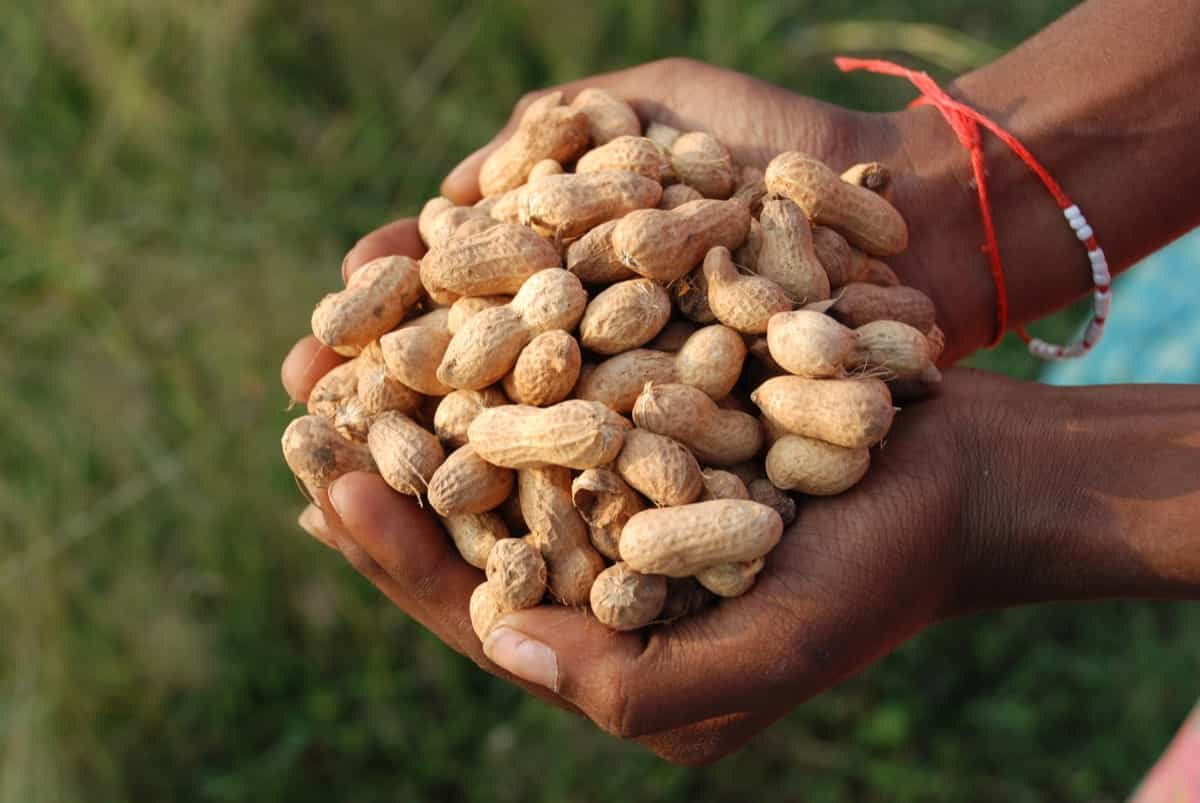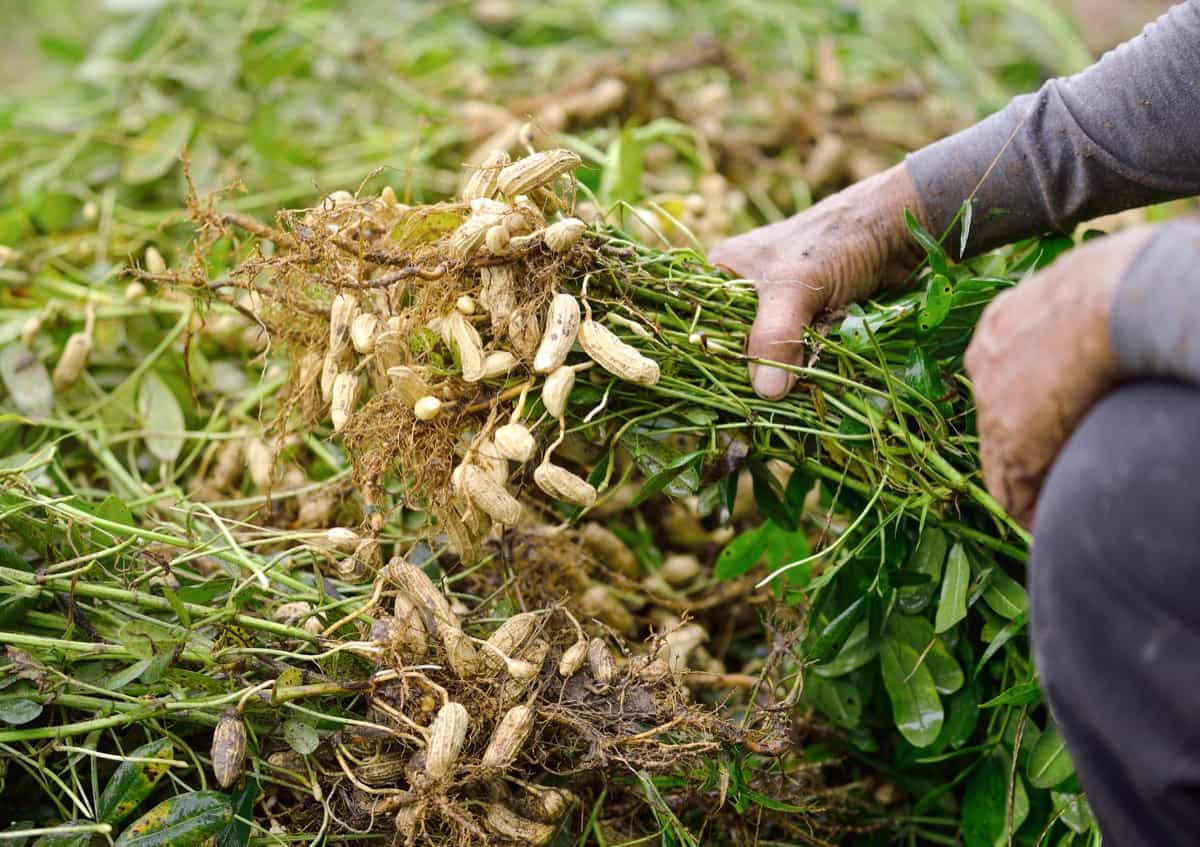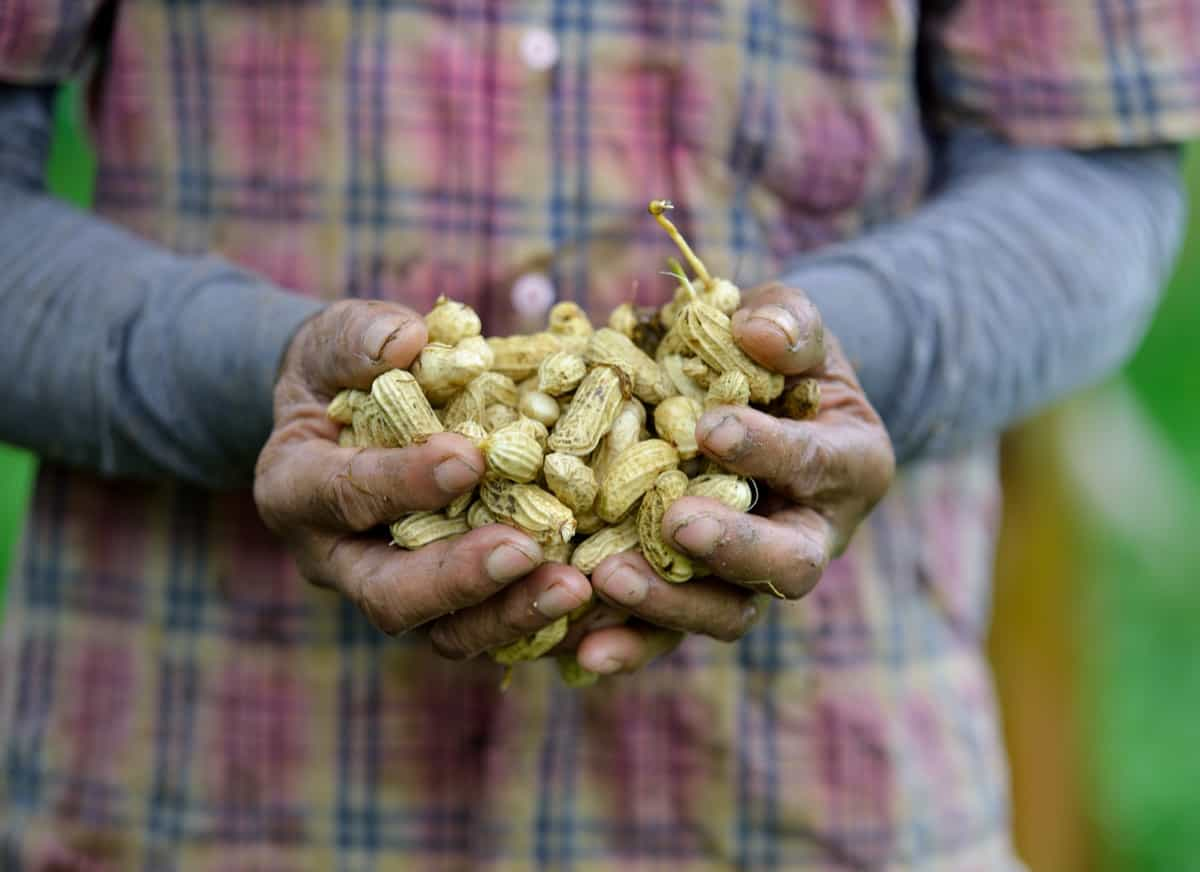Peanuts are one of the most widely consumed and cultivated crops in the world. Peanuts have specific nutrient needs throughout their growth stages, from planting to harvest. Fertilizer is a vital component in agriculture that helps provide essential nutrients to plants.

Fertilizer Requirements and Recommendations for Peanuts
Best Fertilizer for Peanut Crops
- Choosing the right fertilizer is crucial for optimal growth and yield. Peanuts have specific nutrient requirements that must be met to support their development throughout the growing season.
- The best fertilizer for Peanuts is a balanced blend that contains nitrogen (N), phosphorus (P), and potassium (K). These three nutrients are essential in promoting healthy root development, flowering, fruiting, and plant vigor.
- Nitrogen is particularly important for Peanut plants as it helps with leaf and stem growth.
- Phosphorus aids in root development and enhances flower production in Peanuts. It plays a vital role in energy transfer within the plant.
- Potassium helps improve disease resistance and supports proper water regulation within cells.
- In addition to these major nutrients, Peanuts benefit from micronutrients such as iron, zinc, manganese, and boron. These micronutrients are typically included in specialized Peanut fertilizers or can be applied separately based on soil test recommendations. Regular soil tests are important to determine the best fertilizer ratio for your Peanut crop. Soil testing will provide valuable information about nutrient deficiencies or imbalances so you can adjust your fertilizer application accordingly.
Organic Fertilizer for Peanuts
- Compost: This nutrient-rich organic matter decomposes plant materials like leaves, kitchen scraps, and yard waste. Compost helps improve soil structure, enhances water retention capacity, and provides a slow-release source of nutrients for sustained growth.
- Animal Manure: Rich in nitrogen (N), phosphorus (P), potassium (K), and other micronutrients, animal manure offers a well-balanced combination of nutrients necessary for healthy Peanut development. However, using well-aged or composted manure is important to avoid potential weed seed contamination or nutrient imbalances.
- Biofertilizers: These microbial inoculants contain beneficial bacteria or fungi that promote nutrient uptake by plants’ root systems and enhance soil fertility. For Peanuts specifically, rhizobium-based biofertilizers are highly recommended as they help fix atmospheric nitrogen into usable forms.
- Green Manures: Growing cover crops like legumes (e.g., clover or vetch) before planting. Peanuts can enrich the soil with nitrogen through biological fixation while suppressing weeds and improving soil structure.
Fertilizer Application Rates for Peanuts
- Applying too little fertilizer can result in nutrient deficiencies and stunted growth while applying too much can lead to nutrient imbalances and environmental pollution.
- To determine the appropriate fertilizer application rates for Peanuts, it’s important to consider factors such as soil fertility, crop needs, and previous nutrient management practices.
- Generally, applying around 40-60 pounds of nitrogen per acre at planting time or during early growth stages is common. Splitting this amount into multiple applications throughout the growing season may also be beneficial.
- Phosphorus is another vital nutrient for Peanut crops as it helps promote root development and overall plant vigor. Depending on soil test results, the recommended phosphorus application rate usually ranges from 30-50 pounds per acre.
- Potassium plays a significant role in enhancing disease resistance and improving water uptake efficiency in Peanuts. Application rates typically range from 80-120 pounds per acre based on crop requirements determined through proper testing.
Fertilizer Timing for Peanut Plants
Typically, Peanut plants require a series of fertilizer applications throughout their growing season. The first application should be done at planting time or shortly after emergence. This initial dose helps provide the young seedlings with a good start by supplying essential nutrients like nitrogen, phosphorus, and potassium.
In case you missed it: Frequently Asked Questions About Peanut Farming

By timing these applications correctly, you ensure that the plants have access to adequate nutrients during critical growth phases. The recommended dose of fertilizer for groundnut, according to your crop’s growth stages and using appropriate placement techniques, can help maximize nutrient availability when it matters most for optimal yield potential.
Nutrient Deficiencies in Peanut Crops
Nitrogen deficiency – Nitrogen is vital in developing healthy foliage and promotes overall plant growth. Peanuts lacking sufficient nitrogen may exhibit stunted growth and pale green leaves. Farmers can apply nitrogen-rich fertilizers or incorporate organic matter into the soil to rectify this deficiency.
Phosphorus deficiency – Phosphorus aids in root development and helps plants convert energy from sunlight into usable forms. Insufficient phosphorus can result in poor root growth and reduced yields. Farmers should consider using phosphate-based fertilizers to supplement any phosphorus deficiencies.
Potassium deficiency – Potassium is also critical for Peanut crop health as it helps regulate water uptake, enhances disease resistance, and improves yield quality. A shortage of potassium may lead to weak stems, increased susceptibility to diseases, and lower nut production. By applying potassium-rich fertilizers at recommended rates throughout the growing season, farmers can mitigate this deficiency.
Fertilizer Schedule for Peanut Farming
- Peanuts require specific nutrients at different growth stages, and providing the right number of fertilizers at the right time can make all the difference. In the early stages of Peanut development, phosphorus-rich fertilizers should promote root development and overall plant vigor. This helps establish a strong foundation for later growth. As the plants progress into their vegetative stage, nitrogen becomes more important in supporting leafy growth and ensuring healthy foliage.
- During flowering and pod formation, potassium becomes essential as it aids fruit development and improves overall yield quality.
- Dividing fertilizer applications throughout the growing season is important to ensure efficient nutrient uptake by Peanuts.
Importance of Nitrogen in Peanut Production
- Nitrogen is an essential nutrient for Peanut crops, playing a crucial role in their growth and development. This vital element ensures healthy foliage, promotes vigorous root development, and supports optimal pod formation. Peanut plants may exhibit stunted growth, reduced yield potential, and increased disease susceptibility without sufficient nitrogen.
- Farmers must consider appropriate fertilization practices to meet Peanut nitrogen requirements effectively. They can choose from various sources such as organic materials (e.g., compost or manure) or synthetic fertilizers containing different ratios of nitrogen compounds (e.g., urea or ammonium nitrate).
Peanut Fertilizer Recommendations for High-yield
Providing the right nutrients at the right time can impact the growth and productivity of Peanut crops. The NPK fertilizer for Groundnut is approximately 40:40:60 kg/ha applied as basal. Nitrogen is important for plant growth and is vital in developing leaves, stems, and pods. In addition to nitrogen, phosphorus and potassium are important for Peanut crops. Phosphorus aids in root development and early plant establishment, while potassium enhances disease resistance and overall plant health. It is advisable to conduct soil tests to determine the levels of these nutrients before applying fertilizers.
Balancing Phosphorus and Potassium in Peanut Fertilization
- Phosphorus is vital in promoting root development, flowering, and fruiting in Peanuts. It aids in energy transfer within the plant and enhances overall crop vigor. On the other hand, potassium is essential for enzyme activation, water regulation, disease resistance, and overall plant health.
- Remember that excessive or insufficient amounts of either nutrient can harm Peanut crops. Therefore, maintaining this delicate balance is key to optimizing yield potential while minimizing wastage or deficiencies.
- By adopting effective fertilizer management practices that prioritize balancing phosphorus and potassium levels alongside other essential nutrients for Peanuts’ specific needs, farmers can maximize their harvests year after year without compromising plant health or sustainability.
In case you missed it: 1 Acre Groundnut/Peanut Cultivation Project Report in India: Production Cost and Profit

Fertilizer Management for Disease Prevention in Peanuts
- High nitrogen levels stimulate lush, vegetative growth, making plants more susceptible to fungal diseases such as leaf spots and stem rots. Following recommended nitrogen application rates and timing is important to ensure optimal plant health without compromising disease resistance.
- Phosphorus helps promote root development and overall plant vigor, contributing to better disease resistance. Potassium enhances stress tolerance and aids in carbohydrate metabolism, strengthening the plants’ defense mechanisms against various pathogens.
- Regular monitoring is crucial throughout the growing season to promptly identify any signs of diseases. By implementing fertilizer management practices prioritizing plant health and disease prevention, Peanut growers can optimize their yields while minimizing losses caused by various pathogens.
Conclusion
Fertilizer is crucial in providing essential nutrients to the soil, ensuring healthy plant growth, and ultimately leading to optimal yields. Peanuts have specific nutrient needs that must be met at different stages of growth to ensure healthy plants and abundant harvests. By providing essential nutrients to plants, fertilizer promotes healthy growth and development. This leads to increased yield and quality of crops, such as Peanuts.
- Feed Your Flock for Less: Top 10 Tips to Save on Chicken Feed
- Ultimate Guide to Ossabaw Island Hog: Breeding, Raising, Diet, and Care
- Hatching Answers: The Top 10 Reasons Your Chickens Aren’t Laying Eggs
- Eggs and Economics: Breaking Down the Cost of Raising Backyard Chickens
- Defend Your Greens: Proven Methods to Keep Iguanas Out of Your Garden
- Ultimate Guide to Cinnamon Queen Chicken: A Comprehensive Guide for Beginners
- Ultimate Guide to California Tan Chicken: Breeding, Raising, Diet, Egg-Production and Care
- Ultimate Guide to Marsh Daisy Chicken: Breeding, Raising, Diet, and Care
- 10 Types of Chicken Farming Businesses You Can Start for Profits